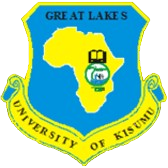
The Bachelor of Education (Arts) at Great Lakes University of Kisumu (GLUK) is a four-year program designed to prepare students for careers in secondary school teaching and educational leadership. Accredited by the Commission for University Education, the program combines academic rigor with practical training to equip future educators with the skills needed to thrive in Kenya’s evolving education system.
Students specialize in two teaching subjects drawn from disciplines such as English, Literature, Kiswahili, History, Geography, Christian Religious Education (CRE), and Business Studies. The curriculum integrates educational theory, curriculum development, and pedagogy with field-based teaching practice, ensuring graduates are well-prepared for classroom instruction and mentorship roles.Wikipedia+4KCAU | Western Campus - Kisumu+4Kabarak University+4
GLUK offers flexible study modes—including full-time, part-time, and holiday-based options—to accommodate diverse learners, including working professionals and recent school leavers. Graduates are qualified to teach in both public and private secondary schools and can pursue careers in curriculum development, educational policy, and community education initiatives.
With campuses in Kisumu and Nairobi, GLUK provides a supportive learning environment that emphasizes community engagement and educational excellence. This program is ideal for students passionate about shaping Kenya’s future through transformative teaching and leadership.


Great Lakes
University of Kisumu (GLUK) is a private and
chartered university in Kenya with its main campus in Kibos, off Kisumu-
Miwani-Mamboleo road in Kisumu county.
GLUK is one of the Keny’as leading
premier health science
training institution that have over the years produced high –level manpower in the
country, in the Eastern
Africa region and beyond Africa borders. GLUK has engaged
in research activities within and outside
the region. In improving the performance of district health systems in Kenya, the university was involved in spearheading the development of the community strategy for Kenya which was tested in six pilot districts in Nyanza before it was
scaled up in the whole country in Kenya as a policy.
The university is unique and highly regarded in its methods
of programme delivery,
action research and community service.
All programmes emphasize
on capacity building
of the vulnerable sections of the community.
The university serves both local and international students,
the university have students from Rwanda, DRC, Uganda, Sudan, South Sudan and Tanzania.
The university have tremendously improved
from its previous
three School/faculties to current five schools/faculties; School of medicine,
School of Community Health and Development, School
of Nursing and midwifery, Faculty of
Agribusiness and Technology and Faculty of Education.